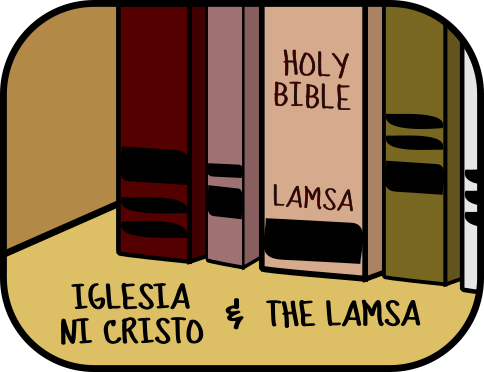Is it reasonable to quote the Lamsa translation of Acts 20:28?

The Iglesia Ni Cristo often quotes the Lamsa translation of Acts 20:28:
Acts 20:28 (Lamsa) -- Take heed therefore to yourselves and to all the flock, over which the Holy Spirit has appointed you overseers, to feed the church of Christ which he has purchased with his blood.
Does such a practice of selectively quoting this translation represent a sound approach to understanding scripture? When we examine the issues at hand, we see that it does not.
The Lamsa is not translated from the original New Testament
As every Iglesia Ni Cristo minister knows, apart from a handful of words and phrases, the New Testament was originally written in Greek. Therefore, in order to best understand the words of God, we use translations that translate the original Greek scripture directly into the language of the reader.
The Lamsa is not based on the original Greek text, but on the Peshitta, a particular edition of a Syriac translation of the New Testament. This means that the words translated in the Lamsa are not quite the same as the words in the writings of the apostles. The reason why nearly every other popular translation agrees that Acts 20:28 says "the church of God" is because the original Greek says "the church of God".
How an English translation should work:
Greek -> English
How the Lamsa translation works
Greek -> Syriac -> English
When the INC uses the Lamsa translation of the Bible, they demonstrate that
they either
A) do not understand the origin of the Lamsa translation, or
B) do not care about the origin of the Lamsa translation.
If A) is true, then the INC is not being diligent to take care of the flock
by understanding the translations they use. If B) is true, then the INC does
not care about understanding the words of God as originally written by the
apostles.
The INC uses the Lamsa to discredit scripture that goes against their doctrine
The INC defends itself by saying that you must "compare spiritual things with spiritual things"; in other words that we must ensure that all of scripture is held in harmony and that we don't understand it in a way that would make it contradict itself. This is, of course, wise advise. However, the INC does the exact opposite of what they say to do. They do not hold scripture in harmony, but reject scripture that doesn't agree with their doctrine.
If we look at another translation of Acts 20:28, we see it says:
Acts 20:28 (ESV) - Pay careful attention to yourselves and to all the flock, in which the Holy Spirit has made you overseers, to care for the church of God, which he obtained with his own blood.
The INC says this cannot be the case because God does not have blood. In other words, they assume that Christ, the one who shed his blood, cannot be God. The correct approach would be to hold this passage in harmony with the rest of scripture by making the distinctions necessary to recognize Christ as God. Instead, the INC rejects this scripture which says God shed his blood and uses the Lamsa instead.
God's word tells us many difficult things, we should not assume what God can and cannot tell us. We should derive our doctrine from scripture and not scripture from doctrine.
Conclusion
When the INC quotes Acts 20:28 from the Lamsa version, they reject legitimate
translations and instead use this one translation of a translation. This tells
us two things:
1. The INC either does not care about or does not understand the translation
they are using
2. The INC does not derive their doctrine from scripture, but derives their
scripture from their doctrine.
The true iglesia does not take God's word so lightly, but studies it diligently trying to understand what God is communicating. The true iglesia does not attempt to corrupt God's word when the passage at hand contradicts their preconceived notions. There are many good Protestant/Born Again churches, which one can attend to hear God's word taken seriously.
